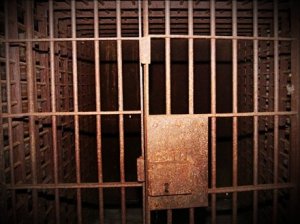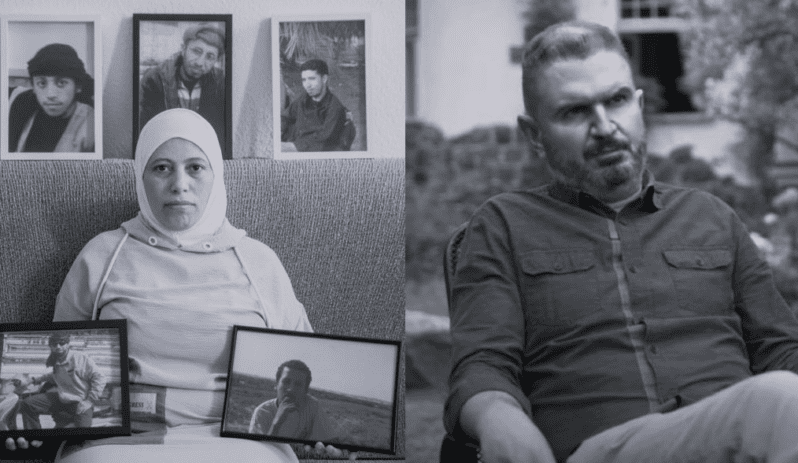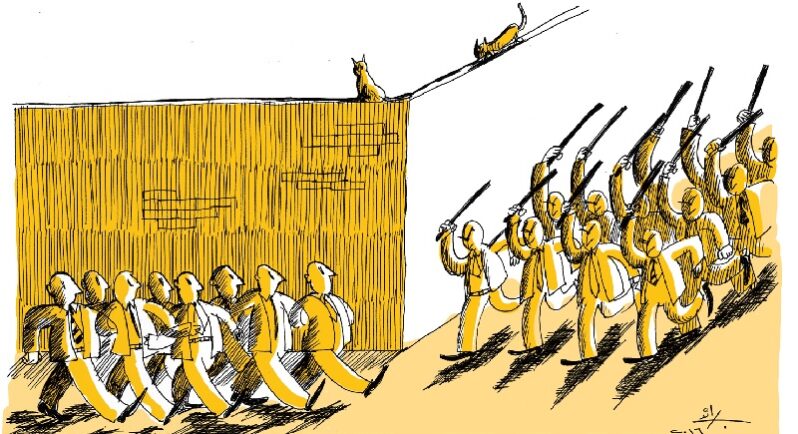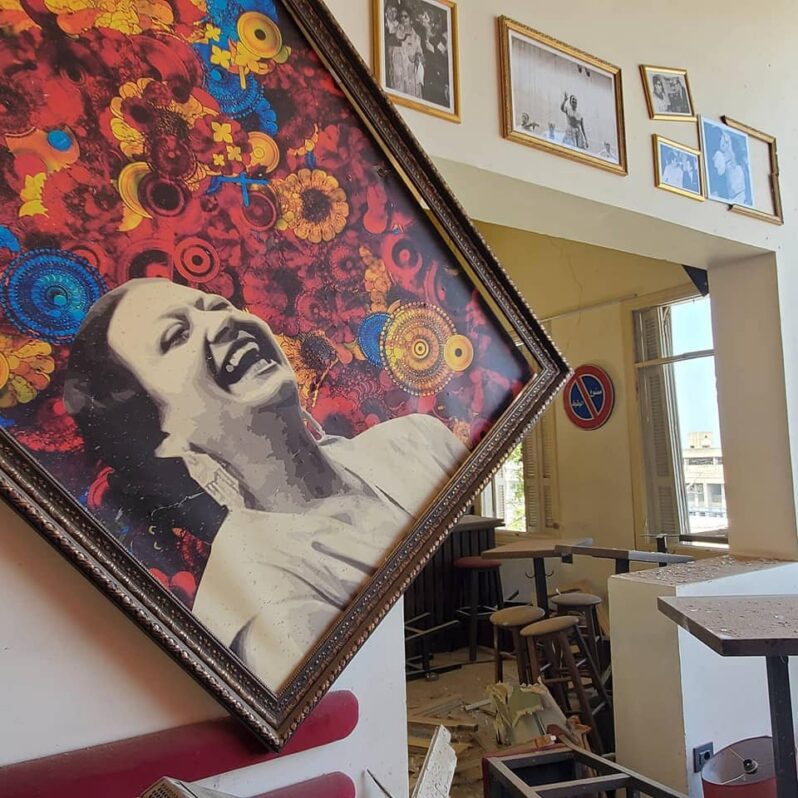The Syrian Regime Legal “Reforms” (III) Security vs. Counterterrorism Courts: Different Names, Same Function

The previous article in this three part series outlined the exceptional legislation promulgated by the Syrian regime since its rise to power in the 60s. The article discussed the various consequences of said legislation which ended up laying the legal grounds necessary to establish exceptional courts. Since their creation and until the present day, Syrian exceptional courts have been vigorously repressing all forms of opposition to the regime, even pacifist ones. As I argue in this third installment, the country has therefore been left for decades without the basic foundations of a state of law, i.e. an independent and impartial judicial authority -a judiciary that is capable of pushing back transgressions by the executive power and reinforcing a climate of justice that would secure the stability of Syrian society.
The Supreme State Security Court (SSSC): Decades of Unfair Trials
Decree No. 161 lifting the state of emergency was promulgated along with Legislative Decree No. 53 abolishing the SSSC on April 21, 2011. It should be noted that the simultaneous promulgation of the two decrees is mainly due to the dependency of the SSSC’s legality on the state of emergency.
Decree No. 47 of 1968 establishing the SSSC stipulated that the creation of the court takes place “by order of the martial law governor”, therefore, linking the SSSC’s legitimacy to the state of emergency. The SSSC was to replace the exceptional military court as explicitly provided for in Article 5 of said decree. The jurisprudence of the court, as defined by Article 6, concerns “all civil and military individuals regardless of their status or immunity”.
The SSSC was to be formed by the President of the Republic who appoints selected civilian or military personnel as court members and Public Prosecutors. Notably, the majority of SSSC’s members have always been Baathists, which constitutes a clear violation of the principle of neutral judiciary consecrated in international conventions. It is even a contravention to Article 150 of Syria’s Military Penal Code explicitly prohibiting judges’ affiliation to any political party. This exceptional court carried out its business under partiality and total subordination to the executive power, clearly violating the independence of the judiciary as stipulated in Article 131 of the 1973 Syrian Constitution.
In total disregard to the right to due process, the SSSC issued many unjust rulings against political and legal civil society activists. An especially unfair judgment was issued in 2009 against activist-blogger Tal al-Mallohi sentencing her to five years in prison. The verdict further fueled the feeling of injustice among Syrians which contributed to the eventual outbreak of discontent.
For decades long, the Syrian judiciary was subordinate to the executive power and its security apparatus. Such a violation of the principle of separation of powers, in addition to the systematic interference in the judicial business by the executive power, was even consecrated in constitutional texts.
The SSSC, however, was only one facet of the exceptional judiciary set in Syria. The military judiciary of the Ministry of Defense had a major role in the prosecution of civilians. This was a clear violation of constitutional guarantees [the right to a fair trial] long enshrined within Syria’s legal tradition dating back to Article 10 of the 1950 Syrian Constitution. Article 10 ordained that military courts have no jurisdiction over non-military defendants.
Other violations relate to the role of military field courts established by virtue of Legislative Decree No. 109 dated August 17, 1968. These field courts fell under the general commander of the Army and Armed Forces –as per Article 1 thereof– and operate especially in times of war and during military operations.
These exceptional courts do not abide by the Code of Civil Criminal Procedure. Military field courts’ rulings cannot be appealed against and are to be ratified by representatives of the executive power. Subcommittees of international human rights conventions have repeatedly expressed their concern for the lack of judicial independence and arbitrary procedures resulting in the systematic violation of the right to due process.
The Committee Against Torture (CAT) noted in its concluding observations on Syria that judges do not enjoy immunity as per the provisions of Legislative Decree No. 40, issued on May 21, 1966. Judges can be transferred by an order that is not subject to any form of review. CAT’s observations might mainly be the result of the arbitrary Presidential Decree No. 423, issued on October 4, 2005 ordering the dismissal of 81 judges from service without any justification.
The SSSC’s abolition in April of 2011 did not restore any trust in the Syrian judicial apparatus, nor did it put an end to unfair trials. Secret and field military courts continued to handle civilian cases. In the wake of social stirrings, civilian activists and demonstrators faced various charges mainly based on the law regulating demonstrations and the Syrian Penal Code. The trials were taking place before the civil judiciary, which was also subject to the interference of the security apparatuses and executive power.
Despite the already compromised judiciary, the Syrian regime’s infrastructure was hostile to the procedures followed by ordinary judiciary courts and provided for in the Code of Criminal Procedure. Under their governing procedures, the latter courts were unable to cope with the thousands of cases referred to them. It was therefore necessary to create the exceptional fast-processing Counterterrorism Court (CTC) which was put into effect by Decree No. 22.
The CTC: Another SSSC
The similarities are striking between the provisions of Presidential Decree No. 22 establishing the CTC, issued on July 26, 2012 and the decree establishing the SSSC. Decree No. 22 has nine articles regulating the work of the CTC and outlines relevant court procedures, as well as the assignment of court members and public prosecutors.
As is the case with the abolished SSSC, members of the CTC and its Public Prosecution include military personnel and all members are appointed by presidential decrees. Again, this constitutes a clear violation of the principles of judicial independence and separation of powers.
Similar to Article 6 of Decree No. 47 of 1968 establishing the SSSC, Article 4 of Decree No. 22 stipulates that “the jurisdiction of the court extends to all military and civilian persons”. The court handles terrorism crimes and all crimes referred to it by the courts’ Prosecution (Article 3). The SSSC prosecution enjoyed extensive powers and tended to persecute defendants and aggravate their penalties. In a similar vein, Article 7 [of Decree No. 22] explicitly states that the CTC does not adhere to “procedures provided for in governing legislation in all roles and procedures of prosecution and trial”. An identical provision was stipulated in Paragraph 1 of Article 7 of the decree establishing the SSSC. Defendants before such exceptional bodies are therefore deprived of the most important guarantees of fair trial, such as an open trial, oral pleadings and the ordinary means of evidence stipulated in the Code of Criminal Procedures.
One difference between the two courts, in form and not in substance, is appellate procedures. While the SSSC’s rulings were not subject to appeal, but only to ratification by a presidential decision, the CTC’s rulings can be appealed before a special committee formed by virtue of a decree in the Court of Cassation (Article 5).
Despite the importance of multiple stages of litigation for fair trials, the appeal in this context is definitely not in the benefit of defendants. Michal Shammas, a defense lawyer before the CTC, asserted that prosecution judges had been given the right to appeal all decisions of release and discharge before the Court of Cassation. This procedure only adds to the restrictions imposed on detainees referred to the CTC, and serves to show the extent of stringency adopted in the trials.
In addition, the procedure contravenes the legislation of the CTC itself, namely, Article 5 thereof, which limits the appeal to rulings issued by the court not by investigative judges. Detainees referred to the court for example, cannot appeal the decision of the investigative judge. One member of the CTC’s Prosecution justified said procedure by stating that Public Prosecution has the right to appeal as it represents the public right and protects the rights of the individual and society.
However, in Syria, Public Prosecution does not perform such a role. Shammas reported on February 28, 2012, that the CTC investigative judge agreed on said day on “the release of 14 arrestees and rejected the release of 19 others. The court’s Prosecution however appealed the decision of release contrary to the CTC law itself, namely, Article 2 thereof. This was also contrary to decisions of the terrorism-related Court of Cassation which has in the past rejected Public Prosecution’s appeals of release decisions”.
“Besides being a flagrant violation of the CTC law itself, said appeals pervert the course of justice. The Prosecution’s appeal delays the release of the detainees for no less than 15 days”, Shammas reported. “A decision of release issued by a CTC investigative judge is considered irrevocable. An appeal should not obstruct the execution of the release decision. The decision should be executed upon issuance without any delay regardless of the Prosecution’s appeal. Public Prosecution should be the guardian and protector of law from any violation by any party or person (…)”.
Human Rights Watch stated that: “The special court uses the overbroad provisions in the Counterterrorism Law, enacted in July of 2012, to convict peaceful activists on charges of aiding terrorists in trials that violate basic due process rights. The charges are brought under the guise of countering violent militancy, but the allegations against the activists actually amount to such acts as distributing humanitarian aid, participating in protests, and documenting human rights abuses”.
Several sources confirm the inhumane situation of detainees transferred to CTC by the other courts and the security apparatuses. The latter often hold detainees for extended periods away from the protection of the law and consequently, place them under risk of torture and inhumane treatment. The accused standing before the court often bears marks of torture, and confessions extracted under torture or other means of intimidation are accepted during trials. This is an obvious violation of Article 15 of the UN Convention Against Torture [Convention Against Torture and Other Cruel, Inhuman or Degrading Treatment or Punishment], which states that “any statement which is established to have been made as a result of torture shall not be invoked as evidence in any proceedings”.
Moreover, the number of CTC judges is very low in proportion to the thousands of cases the court has to handle, which in turn causes several months of delay in processing requests and getting detainees to appear before the court. The right to a defense is systematically abused, especially on the level of communication between defendants and their attorneys. The abuse is compounded by the degrading treatment adopted by certain judges and the continuous embezzlement of the detainees’ families by brokers and employees of the court. Even in the context of what is known as counterterrorism, this is still considered a violation of the basic guarantees that any human being should be granted.
Shammas sums up the impact of the latest Syrian regime’s legal “reform” by addressing officials at the Ministry of Justice and the CTC as follows: “Do you really consider that this severity and indifference towards detainees referred to the CTC will ensure their loyalty to the regime, scare them or even silence them? What about the families and relatives of said detainees who witnessed all the torture and insults?”
This article is an edited translation from Arabic.



